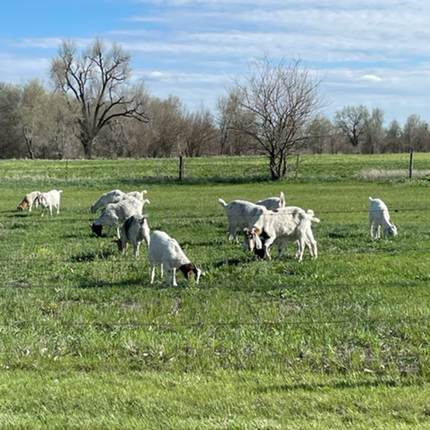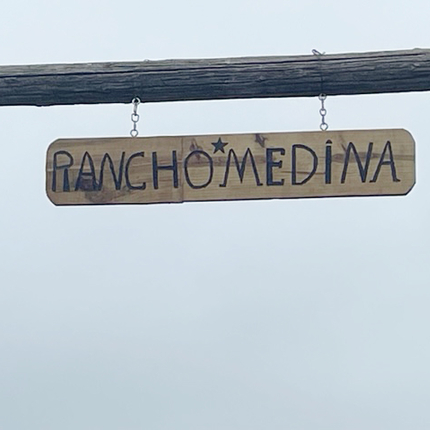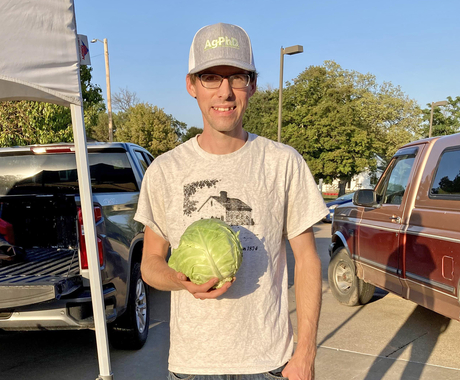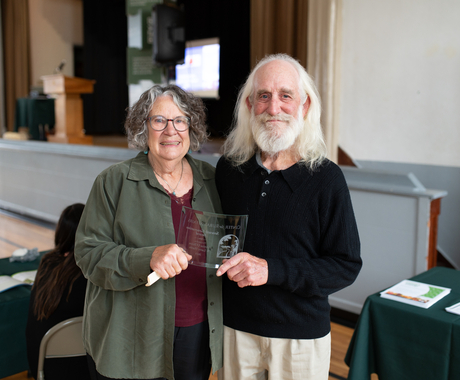Para la versión en español, oprima aquí.
From California to Nebraska, Catherine Medina and her husband came a long way to live out their retirement dreams.
The couple made a trip each year to see family in Schuyler, Nebraska and decided they wanted to retire nearby on an acreage. On one such trip, an opportunity presented itself.
“On one of my daily walks during our visit, I encountered an acreage for sale,” she said. “We then worked with the owner to purchase the property.”
The couple named their operation Rancho Medina and began farming on their 6 acres of land. They raise livestock, including 12 female goats and one male. They also have 13 chickens and one rooster, and use some of the land to grow vegetables each year.
As she has grown her operation, Catherine has relied on advice from family who have farmland in Mexico, as well as lots of trial and error.
“Every year we have adjusted our plan,” she said. “We did not have anyone else besides family to talk to. We have one neighbor with cows who have been receptive to our adventure of raising goats, and we have received medical help for the animals from the local veterinarian.”
They have sold eggs and goats to members of their community, mostly by word of mouth.
“Originally, we had goats to keep the pasture down,” she said. “After they began breeding, we decided to sell the male goats for meat. Our land is within the visibility of our community. All I do is mention it on Facebook when we have goats or eggs for sale.”
Catherine isn’t scared of trying new things and recommends that other Latino farmers looking to start their operations be willing to take chances.
“Educate yourselves before entering into this venture,” she said. “We could have saved time and animal lives knowing more. Keep an open mind on what works and doesn't work. I recommend taking classes, reading books, and getting to know the veterinarian in your area.”
Recently, Catherine was highlighted as an example to inspire and educate Latino beginning farmers and share knowledge, experience, and advice for starting their operations.
This Center for Rural Affairs case study series showcases three Latino farmers in Nebraska, including Catherine. It shows how they run their operations, what they produce, and lessons they have learned that might be helpful and educational to other aspiring Latino farmers. The Center is able to assist beginning farmers by providing resources and training opportunities.
Lucia Schulz, a community organizing associate with the Center, has worked with each of the farmers highlighted in the case study.
“Catherine is passionate about raising goats, and she’s a lifelong learner with a lot of experience who’s always eager to learn more,” Lucia said. “All of the farmers have a different way of running their operations. Their different styles of approaching, managing, and experience make each of them worthy of being showcased.”
To learn more about Catherine, check out our case study.






